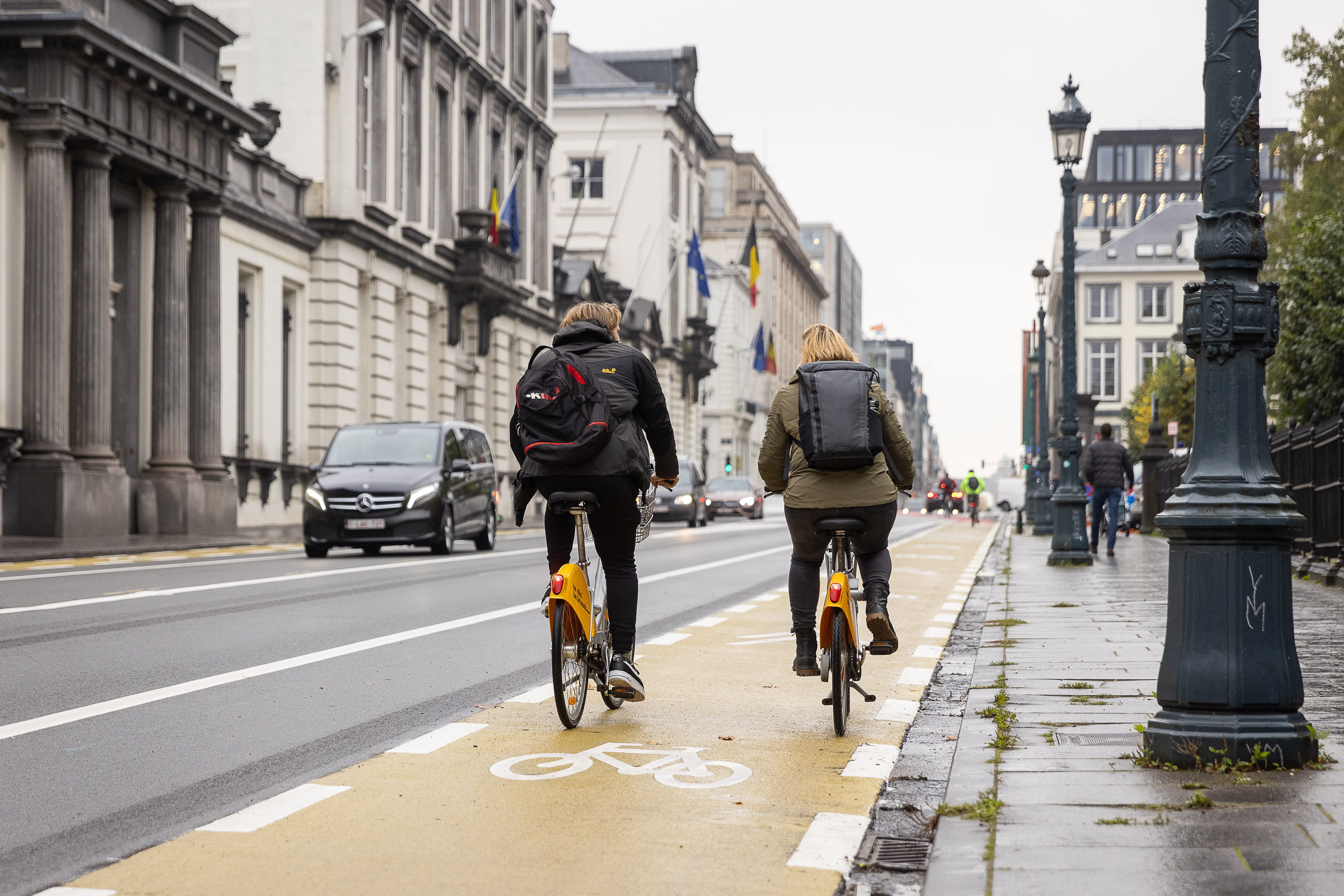Cycling gains in popularity for commuting but car remains king

The bicycle is becoming increasingly important for Belgian commuters. 41.2 per cent of workers use it for part or all of their journeys, a sharp rise compared to five years ago. However, the car still reigns, being used for 78 per cent of commutes. Public transport lags behind at 8 per cent, according to a study by HR service provider Acerta.
Over the past five years, bicycle use for commuting has grown by nearly 35 per cent. From 2023 to 2024 alone, the share of bicycle commutes increased by 5.4 per cent. Currently, about 15 per cent of workers in Belgium commute exclusively by bike. This figure is notably higher in Flanders (17.3 per cent) than Wallonia (2.2 per cent).
These findings are part of the ninth mobility barometer by Acerta, based on data from more than 362,000 employees.
Top choice
Nearly a quarter of workers combine cycling with a car. “Combining is possible in many ways,” said Charlotte Thijs, mobility expert at Acerta Consult. “For example, someone might cycle part of the way and then take the train, or cycle to work in good weather and drive during bad weather.”
The car remains the top choice for commuting, with more than half of workers (52.3 per cent) always driving. Public transport, in contrast, is much less popular. Only 5.5 per cent of commuters exclusively use public transport while 2.9 per cent combine it with a bike or car. Overall, public transportation plays a role in just 8 per cent of commutes.
“Where and when trains, trams, or buses are available is beyond the commuter’s control,” said Thijs.
Passive users
“They are passive users, and employees are clearly reluctant to take on that passive role. Those who can prefer to take control of their own journeys. Only in areas with high public transport availability and where car use is discouraged - like in the Brussels-Capital Region - does public transport gain traction.”
"Where and when trains, trams, or buses are available is beyond the commuter’s control"
The barometer also revealed that the average worker lives 21.1km from their workplace, with notable regional differences. In Wallonia, the average distance is 25.8km, compared to 20.7km in Flanders.
“That additional 5 kilometers could be the deciding factor between cycling to work or not,” Thijs said.
Bike commuters in Brussels © BELGA PHOTO JAMES ARTHUR GEKIERE
Related news

